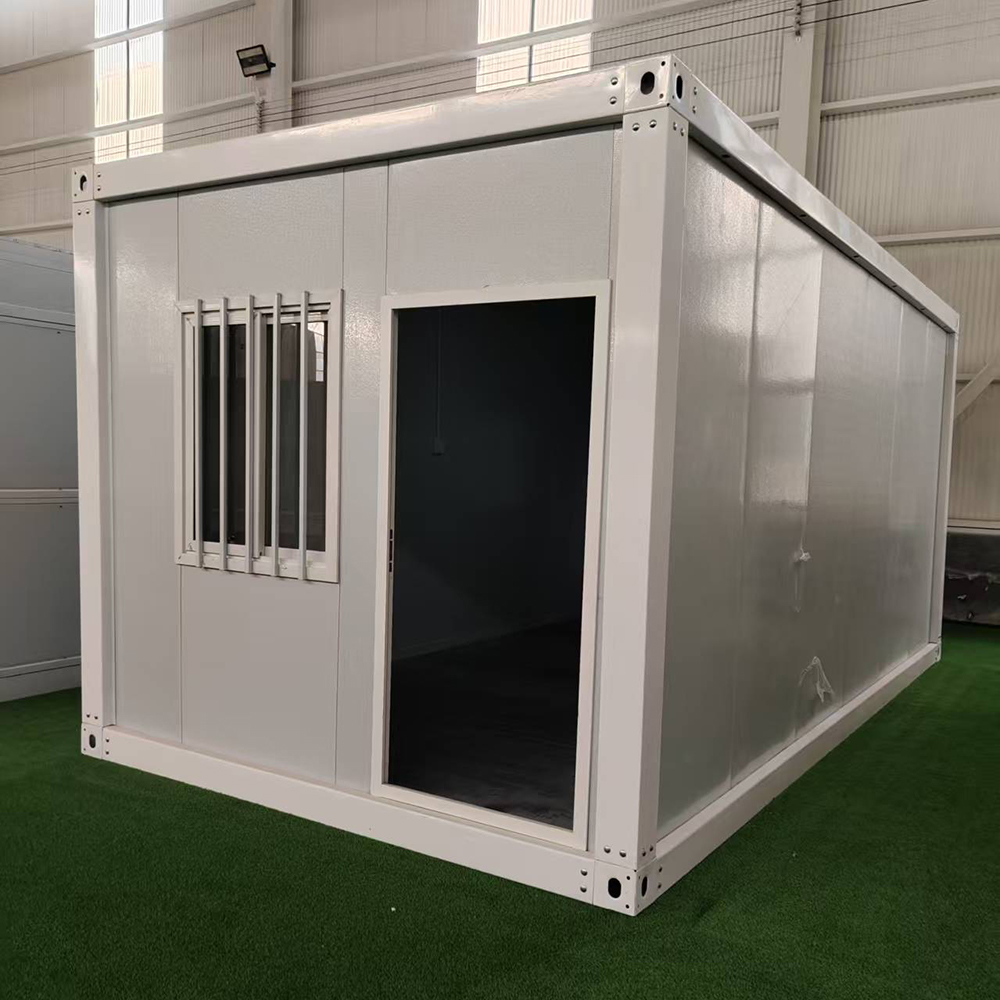-
E-mail
Austin120521@outlook.com -
E-mail
sales@jujiuhouse.com -
Telephone
+86-17864099991 -
Telephone
+86-17854044442
- Chinese
- French
- German
- Portuguese
- Spanish
- Russian
- Japanese
- Korean
- Arabic
- Irish
- Greek
- Turkish
- Italian
- Danish
- Romanian
- Indonesian
- Czech
- Afrikaans
- Swedish
- Polish
- Basque
- Catalan
- Esperanto
- Hindi
- Lao
- Albanian
- Amharic
- Armenian
- Azerbaijani
- Belarusian
- Bengali
- Bosnian
- Bulgarian
- Cebuano
- Chichewa
- Corsican
- Croatian
- Dutch
- Estonian
- Filipino
- Finnish
- Frisian
- Galician
- Georgian
- Gujarati
- Haitian
- Hausa
- Hawaiian
- Hebrew
- Hmong
- Hungarian
- Icelandic
- Igbo
- Javanese
- Kannada
- Kazakh
- Khmer
- Kurdish
- Kyrgyz
- Latin
- Latvian
- Lithuanian
- Luxembou..
- Macedonian
- Malagasy
- Malay
- Malayalam
- Maltese
- Maori
- Marathi
- Mongolian
- Burmese
- Nepali
- Norwegian
- Pashto
- Persian
- Punjabi
- Serbian
- Sesotho
- Sinhala
- Slovak
- Slovenian
- Somali
- Samoan
- Scots Gaelic
- Shona
- Sindhi
- Sundanese
- Swahili
- Tajik
- Tamil
- Telugu
- Thai
- Ukrainian
- Urdu
- Uzbek
- Vietnamese
- Welsh
- Xhosa
- Yiddish
- Yoruba
- Zulu
- Kinyarwanda
- Tatar
- Oriya
- Turkmen
- Uyghur

cabin expandable container house for hotel
The Aesthetic and Functional Appeal of Expandable Container Houses for Hotels
When we talk about expandable container houses for hotels, there's often a blend of fascination and skepticism. These structures promise a fusion of innovation and practicality, yet not everyone is convinced of their viability as hotel accommodations. The idea is to bring a unique, modular approach to hospitality, but the transition from concept to comfortable stay is where the challenge lies.
Why Choose Expandable Container Houses?
Expandable container houses offer a compelling alternative to traditional hotel accommodations. They promise rapid deployment, flexibility in design, and the possibility of sustainable living. However, it's crucial to consider the expectations of the guests. Often, people assume that these structures may lack the comfort or upscale finishes of a conventional hotel room.
One practical case I saw was at a coastal destination, where Shandong Jujiu Integrated Housing Co., Ltd. provided the expandable units. The guests appreciated the unique design and the eco-friendly message it conveyed. You can see more about their approach on their website, here.
Still, every site comes with unforeseen challenges. For instance, ensuring proper insulation for different climates is key. A container house that works well in a temperate zone may need significant modification for colder regions.
Design and Aesthetics Matter
From my experience, aesthetics play a pivotal role in the success of expandable container houses for hotels. They aren't just supposed to look like upcycled shipping containers thrown together. Thoughtful design can transform these structures into inviting spaces with unique character.
I once visited a rural site where the containers were arranged around a central courtyard, allowing for both communal interaction and privacy. It created a vibrant social spot while maintaining comfort. It's about giving people an environment that feels both novel and homey.
But here's the thing: finding the right balance with aesthetics usually involves some trial and error. You might start with a design concept that sounds promising on paper, only to realize that it doesn't translate well in reality.
The Importance of Functionality
Functional design should never be underestimated, especially when you're talking about accommodations. For hotels taking the container route, it's about making the most of limited space without sacrificing comfort or utility.
There's a particular project I remember where the initial layout looked spectacular but was slightly off in practical terms. The team had to rework the bathroom setups and storage solutions to meet guest comfort standards. Real-life application invariably teaches lessons plans can't.
Functionality extends to accessibility too. One project by Shandong Jujiu Integrated Housing Co., Ltd. incorporated ramps and wider doorways seamlessly into their design, improving the experience for all guests. Their expertise in optimizing these spaces is worth exploring—visit their website for insights.
Cost Efficiency and Environmental Impact
When managed well, expandable container houses can offer significant cost benefits. They're often quicker and cheaper to construct, allowing hotels to realize returns faster compared to traditional builds.
However, the true value isn’t solely in the construction costs but in the ongoing maintenance and sustainability. Often local materials can reduce both environmental footprint and costs. It’s about being smart with resources and strategically planning for future usage.
One team I worked with had a brilliant idea—integrating solar panels into the container roofs expanded their utility without compromising the aesthetics. Such innovations can make a significant difference in running costs over time.
Challenges and Learning Curves
Not everything about expandable container houses is straightforward. There are challenges, and overcoming them requires both creativity and experience. Whether it’s dealing with zoning regulations, ensuring structural integrity, or tailoring finishes to meet market expectations, each project brings its own learning curve.
A few developers have underestimated the importance of local compliance and ended up with stalled projects. This is why having a well-rounded partner like Shandong Jujiu Integrated Housing Co., Ltd., who understands both regional regulations and construction nuances, is invaluable.
From logistics to last-minute design changes, the journey is rarely smooth. The best practitioners are those who can pivot effectively and make intelligent decisions on the fly, always with the guest experience in mind.
Related products
Related products
Best selling products
Best selling products-
 High-quality Double-wing Folding Container House with Doors and Windows, Insulated Walls, Suitable for Various Scenarios.
High-quality Double-wing Folding Container House with Doors and Windows, Insulated Walls, Suitable for Various Scenarios. -
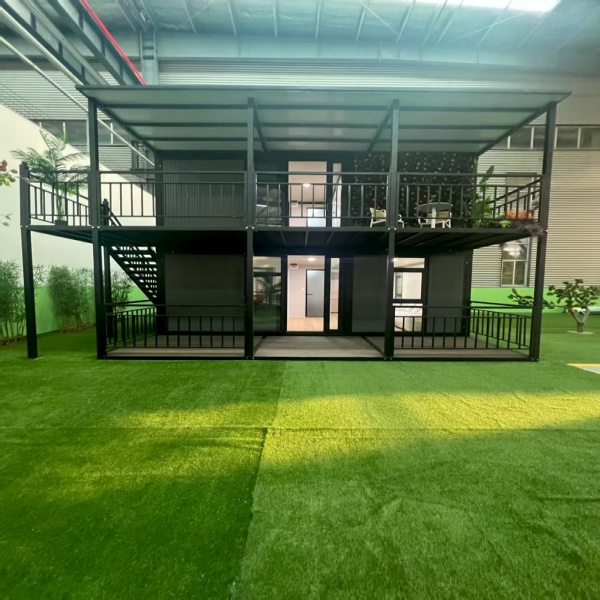 Luxury foldable two-story container houses in luxury resort hotels and villa hotels
Luxury foldable two-story container houses in luxury resort hotels and villa hotels -
 Factory Direct Sales Office Folding Container Luxury House Living Container House
Factory Direct Sales Office Folding Container Luxury House Living Container House -
 Hot-selling foldable container houses, expandable prefabricated houses, suitable for office or living use, with fast delivery.
Hot-selling foldable container houses, expandable prefabricated houses, suitable for office or living use, with fast delivery. -
 Movable Prefabricated Container House Villas Modular Portable Homes 1 Bedroom Container House Offices Apartments
Movable Prefabricated Container House Villas Modular Portable Homes 1 Bedroom Container House Offices Apartments -
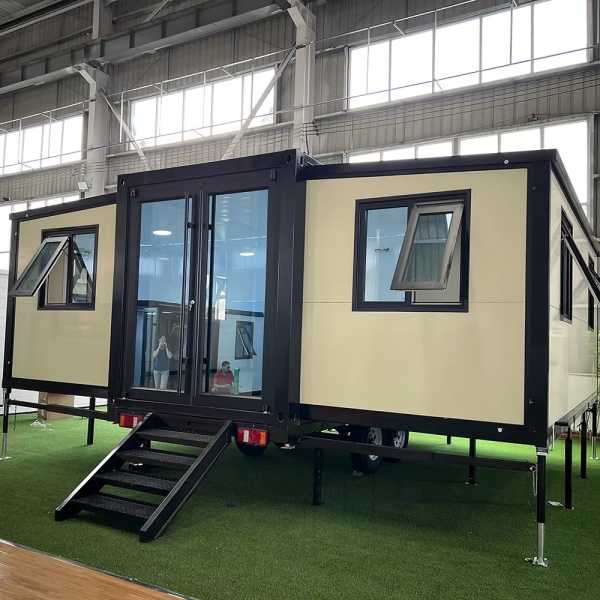 Stair Access Double Wing Expandable Container House | Easy Installation Mobile Office
Stair Access Double Wing Expandable Container House | Easy Installation Mobile Office -
 Reasonable Price 1 Bedroom Modular Container House Folding Container Home for Villa or Apartment Use
Reasonable Price 1 Bedroom Modular Container House Folding Container Home for Villa or Apartment Use -
 Easy Install Customized Detachable Container Homes Extendable House Prefab 2 Floors Expandable Container House
Easy Install Customized Detachable Container Homes Extendable House Prefab 2 Floors Expandable Container House -
Two Wing Folding Expandable Container House
-
 A container house with a terrace and double-wing folding design, suitable for various purposes such as offices, meeting rooms, living rooms, etc.
A container house with a terrace and double-wing folding design, suitable for various purposes such as offices, meeting rooms, living rooms, etc. -
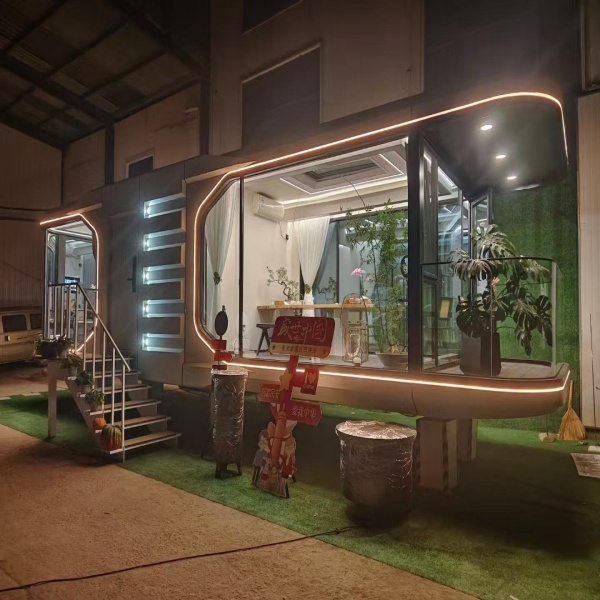 Outdoor ecological capsule rooms, luxury pods, space capsule hotel rooms, prefabricated space capsules, container houses
Outdoor ecological capsule rooms, luxury pods, space capsule hotel rooms, prefabricated space capsules, container houses -
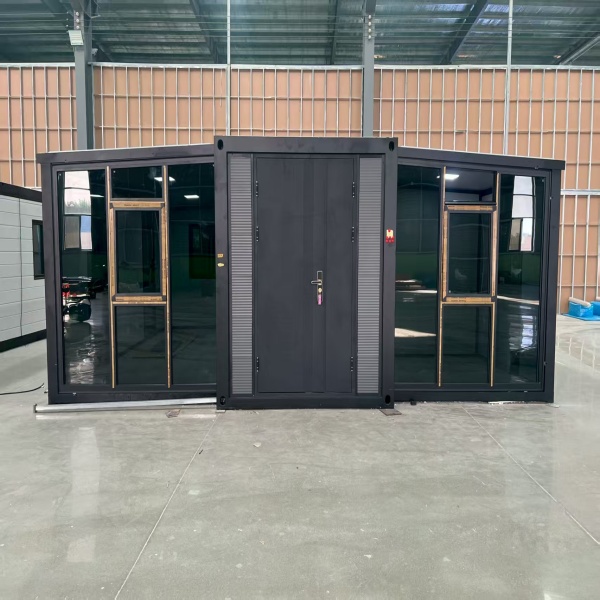 Customizable Office Mobile Home with Flat Roof and Double Wing Expansion Box, Convenient Container
Customizable Office Mobile Home with Flat Roof and Double Wing Expansion Box, Convenient Container
Related search
Related search- prefabricated expandable container house
- fold out container homes
- China low price expandable container house 20ft
- Buy 20ft 40ft expandable container house with solar energy
- house that folds out
- space capsule cabin
- fold out houses from boxabl
- folding container house
- Buy prefabricated modular container house
- Buy villa prefab modular apple cabin










